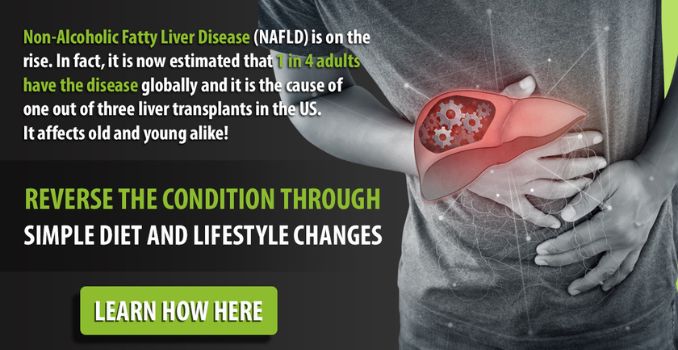Alcoholism is a complex issue extending beyond the bottle, with ongoing debates about its classification as a mental illness. A holistic approach to recovery, encompassing aspects like nutrition, exercise, and mindfulness, can significantly improve the quality of life for those grappling with addiction.
This article delves into the question of whether alcoholism is a mental illness, presenting the latest research findings. It also explores promising holistic strategies for healing, aiming to empower individuals seeking to break free from the clutches of alcohol addiction. Whether facing addiction or seeking information, the article provides insights for building a healthier, happier life.
Understanding Alcoholism as a Mental Illness

Alcoholism, while not officially designated as a mental illness by the DSM-5 (Diagnostic and Statistical Manual) ¹, is closely linked to mental health. Individuals with alcoholism often have concurrent mental disorders like depression.
This interconnection creates a detrimental cycle where addiction and mental distress reinforce each other. Moreover, alcohol abuse can disrupt brain chemistry, contributing to the emergence of mental health problems.
Acknowledging the intricate relationship between alcoholism and mental well-being is crucial, recognizing that while it may not neatly fit the mental illness label, there exists a significant interplay that demands attention.
The Connection Between Alcoholism and Mental Health

The relation between alcoholism and mental health is evident. The American Medical Association studies indicate a heightened danger of mental health issues in individuals with Alcohol Use Disorder (AUD) ² that is under the umbrella of substance use disorders.
Conversely, those with mental health issues often resort to alcohol as self-medication, perpetuating a harmful cycle of addiction and deteriorating mental health. Alcohol’s impact on neurotransmitters such as dopamine and serotonin, crucial for mood regulation, may explain this connection, as prolonged substance abuse often disrupts these systems, contributing to mental health disorders.
Additionally, alcoholism can yield significant social and psychological repercussions, including relationship challenges, isolation, and low self-esteem, further adversely affecting mental well-being and potentially exacerbating health issues.
Is Alcoholism a Mental Illness?

Alcoholism as a mental illness is a controversial topic in the medical and psychiatric fields ³. Currently, the DSM-5 categorizes Alcohol Use Disorder (AUD) as a substance-related disorder rather than a mental illness.
Despite this distinction, the profound impact of alcoholism on mental health is acknowledged. The blurred line between mental illness and substance use disorder emphasizes the interconnected nature of these conditions, often coexisting and influencing each other.
Adopting a holistic perspective is crucial, acknowledging the intricate relationship between alcoholism and other mental health conditions. This approach facilitates the development of more effective prevention, treatment, and recovery strategies by understanding the complex interplay between these interconnected domains.
Is Alcoholism a Disease?

An alternative perspective on alcoholism involves considering it as a disease. The disease model of addiction contends that alcoholism, akin to other addictions, is a chronic brain disease marked by compulsive drug-seeking behavior despite negative consequences.
Advocates argue that alcoholism induces changes in the brain’s reward and motivation systems, resembling physiological changes in chronic diseases like diabetes or heart disease. Critics counter that the disease model oversimplifies addiction, neglecting psychological and social factors.
They stress addressing underlying causes rather than solely focusing on neurochemistry. Despite limitations, the disease model has reduced addiction stigma, fostering a more compassionate view of alcoholism as a chronic condition. Regardless of classification, empathy, and comprehension are crucial.
Alcoholism Symptoms

Recognizing the symptoms of alcoholism is essential for early intervention and effective treatment. While the severeness and presentation of symptoms can vary from person to person, some common signs of alcoholism include:
It is important to note that alcoholism is a progressive illness, and symptoms may worsen over time if left untreated. If you or someone you know is experiencing these signs or symptoms, seeking professional help and support is crucial.
The Impact of Alcoholism on Mental Well-Being
Alcoholism significantly impacts mental well-being by disrupting neurotransmitter balance, causing mood swings, anxiety, and depression. These effects can contribute to mental health disorders or worsen existing conditions.
Additionally, alcoholism can strain relationships, erode social support, and foster feelings of isolation. The associated shame and guilt contribute to low self-esteem and a negative self-image.
Successful recovery from alcoholism requires addressing its mental health aspects, extending beyond abstaining from alcohol. Individuals in recovery need support and resources to rebuild mental well-being, fostering the development of healthy coping mechanisms alongside sobriety.
Holistic Approaches to Treating Alcoholism
Treating alcohol addiction requires a comprehensive, holistic approach that addresses the physical, spiritual, and emotional aspects of the individual. While traditional treatment methods such as detoxification and therapy play a crucial role, incorporating holistic approaches can enhance recovery outcomes and promote overall well-being.
1. Nutrition

A healthy diet can aid recovery by providing essential nutrients that support brain health and restore imbalances caused by alcohol and drug abuse alone. Nutrient-rich foods like fruits, vegetables, whole grains, and lean proteins can help restore damaged tissues and support mental health.
2. Exercise
Regular exercise has been shown to have numerous advantages in recovery. Exercise can help reduce cravings, improve mood, reduce stress, and promote better sleep. Walking, jogging, yoga, or swimming can provide a healthy outlet for emotions and contribute to overall well-being.
3. Mindfulness and Meditation
Practicing meditation and mindfulness approaches can help individuals in recovery develop greater self-awareness, manage cravings, and reduce stress. Techniques, such as deep breathing practices and guided imagery, can be powerful tools for coping with triggers and maintaining sobriety.
4. Alternative Therapies

Complementary therapies such as acupuncture, massage, and art therapy can support recovery. These therapies can help individuals address emotional issues, reduce anxiety, and promote relaxation.
By adopting a holistic approach to treating alcoholism, individuals can address the basic causes of addiction and develop a more balanced and fulfilling life in recovery.
Therapy Options for Addressing Alcoholism and Mental Illness
Therapy plays a crucial role in addressing alcoholism and co-occurring mental health issues. Various therapeutic approaches have been proven effective in helping individuals develop coping skills, understand the source of their addiction, and create a strong foundation for recovery.
1. Cognitive-Behavioral Therapy (CBT)

CBT focuses on distinguishing and changing negative thought patterns and behaviors that contribute to alcohol dependence and abuse. It helps individuals develop healthier coping mechanisms and strategies for managing cravings and triggers.
2. Motivational Interviewing
This therapeutic approach enhances motivation and resolves ambivalence about change. It helps individuals explore their reasons for change, develop strategies, and set goals to overcome obstacles.
3. Dialectical Behavior Therapy (DBT)
DBT combines CBT with mindfulness approaches to help individuals regulate emotions, manage distress, and improve interpersonal skills. It can be particularly beneficial to people with co-occurring mental illnesses or with other health disorders.
4. Family Therapy
The involvement of family members in the recovery process can provide essential support and help address underlying family dynamics that may contribute to alcoholism. This therapy can help improve communication, rebuild trust, and strengthen relationships.
5. Group Therapy

Participating in group therapy enables individuals to connect with peers with similar experiences, allowing them to share experiences, gain fresh perspectives, and develop coping skills together.
6. Holistic Therapies
Incorporating holistic therapies such as yoga, meditation, or art therapy can complement traditional therapy approaches and provide additional tools for self-discovery and healing.
Self-Help Strategies for Recovery and Mental Health Management
In addition to professional therapy, self-help strategies can play a crucial role in recovery and the management of mental health disorders. Here are some self-help strategies that individuals can integrate into their daily lives:
The Importance of a Support Network in Overcoming Alcoholism and Mental Illness

Building a strong support network is essential for individuals overcoming alcoholism and managing mental illness. Recovery is often a challenging and lifelong journey, and individuals who understand and support one’s goals can make a significant difference in recovery.
A support network can provide emotional support, practical assistance, and a sense of belonging. It can also be a tool for promoting accountability, helping individuals stay committed to their sobriety and mental health goals.
Support networks can come in many forms, including friends, family, support groups, therapists, or sponsors. The key is to surround oneself with understanding, nonjudgmental individuals who are committed to recovery.
Conclusion
Alcoholism is a complex issue that extends beyond the bottle. While it may not fit neatly into the definition of a mental illness, it is clear that alcoholism can have profound impacts on mental health. Understanding the interconnected nature of alcoholism and mental health is crucial for developing effective strategies and promoting well-being.
By adopting a holistic technique that encompasses nutrition, exercise, mindfulness, therapy, and support networks, individuals can go beyond the bottle and build healthier, happier lives in recovery. Remember, healing is a journey, and every step forward is a victory worth celebrating.
A healthy liver is essential to a long, happy life. So check out this Master Guide to Liver Health now!


Rick Kaselj MS, is a leading kinesiologist and injury specialist as well as co-creator of the best-selling Unlock Your Hip Flexors program. Rick creates exercise programs that help people heal injuries and eliminate pain, so they can go back to living a full, active, healthy life.



